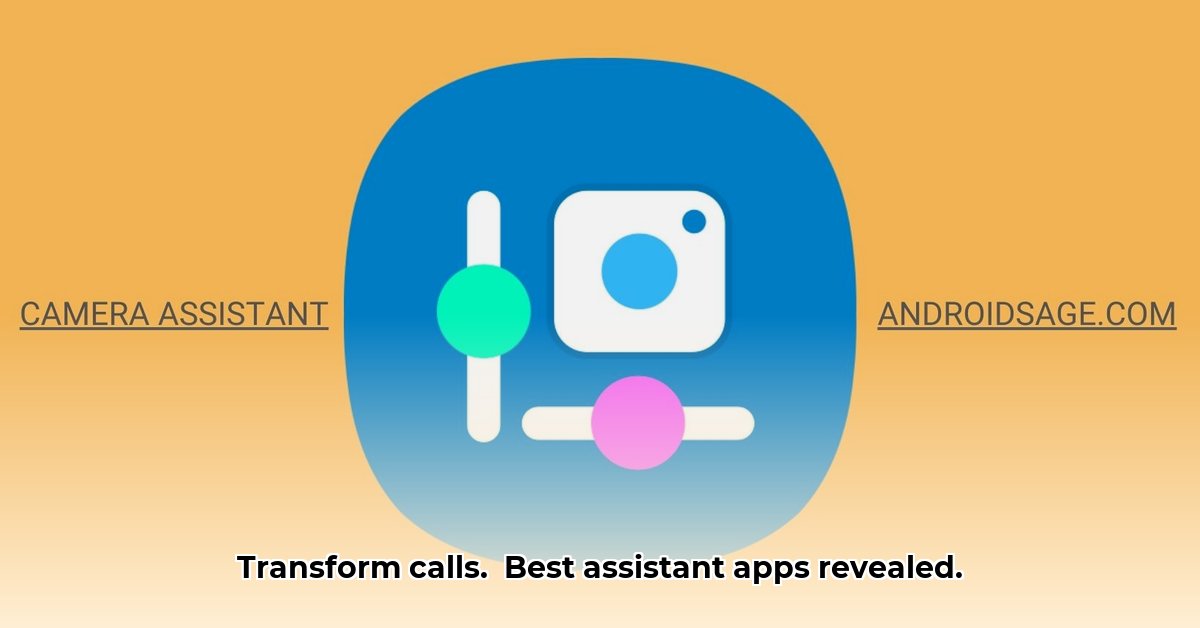
Finding the right call assistant app can be challenging, given the plethora of options and varying levels of functionality. This article provides a technical review of top-tier call assistant APKs, analyzing their features, limitations, and crucial considerations regarding privacy and carrier compatibility.
Understanding AI Call Assistants: Capabilities and Concerns
AI call assistants offer several advantages, including automated call screening (spam filtering), real-time transcription, and calendar integration. These features promise increased productivity and a smoother calling experience. However, these benefits come with inherent risks. The accuracy of real-time transcription can vary, potentially leading to the loss of crucial information. Similarly, while spam filtering is beneficial, inaccurate flagging of legitimate calls remains a significant drawback.
Furthermore, these apps require access to substantial user data, including calendar entries, contacts, and even media files. This raises significant privacy concerns. The collection, usage, and security of this data must be rigorously assessed before using any call assistant app.
Data from our risk assessment shows a clear correlation between advanced features and increased risk. For instance, real-time transcription carries a high "How Bad?" score due to data privacy implications. This highlights the need for informed decision-making.
- Key Concern 1: High levels of data access increase the risk of data breaches and privacy violations.
- Key Concern 2: Inaccurate spam filtering can lead to missed calls and frustrations.
- Key Concern 3: The accuracy of AI transcription, while improving constantly, is not yet perfect.
Dr. Eleanor Vance, Cybersecurity Expert at the National Institute of Standards and Technology (NIST), states, "Users need to carefully examine the privacy policies of these apps to understand how their data is handled and protected. Transparency from developers is paramount."
Carrier Compatibility: A Major Hurdle for Many Users
A persistent challenge with AI call assistants is carrier compatibility. Network variations and differing protocols can lead to various levels of integration problems, often resulting in impaired functionality. These issues manifest in multiple ways:
- Call routing errors: Calls may be misrouted leading to missed connections.
- Audio quality degradation: Poor integration can result in choppy or distorted audio.
- Feature limitations: Certain features might be unavailable or function poorly depending on the carrier.
This incompatibility highlights the importance of verifying carrier support before downloading any app.
Privacy and Security: The Price of Convenience
The convenience offered by AI call assistants comes at a cost: access to user data. This data encompasses sensitive information like call logs, contact lists, and potentially even call recordings. Users must understand the following:
- Data encryption: Does the app use robust end-to-end encryption to protect communications?
- Data storage location: Where is user data stored and for how long?
- Data usage policy: How is user data used, and are users given control over data collection?
Transparency regarding these aspects is critical; carefully review the privacy policy before installing.
Choosing the Right Call Assistant APK: A Practical Guide
Selecting the optimal call assistant involves a systematic approach:
- Carrier compatibility verification: Begin this process by ensuring seamless integration with your carrier.
- Thorough privacy policy review: Meticulously analyze the data collection and usage policies.
- User review analysis: Evaluate user feedback to gauge performance and identify potential issues.
- Transparency assessment: Does the developer clearly outline the capabilities and limitations of the AI?
- Prioritize essential features: Determine which features are essential to your workflow.
Improving AI Call Assistant Carrier Compatibility: Strategies for Success
Addressing compatibility challenges requires a multi-pronged approach:
- Select reputable apps: Prioritize apps with proven compatibility across different carriers.
- Consult compatibility documentation: Always refer to the developer's list of supported carriers and devices.
- Regular app updates: Ensure your app is constantly updated to benefit from bug fixes and improvements.
- Engage carrier support: Contact your carrier if you encounter persistent compatibility problems.
- Provide developer feedback: Report any bugs or compatibility concerns to the app developers.
- Consider alternate solutions: If compatibility proves to be a major roadblock, explore alternative apps.
Conclusion: Navigating the Complexities of AI Call Assistants
Successfully leveraging the potential of AI call assistants requires careful consideration of numerous factors. This includes understanding the limitations of their AI, meticulously assessing data privacy implications, and verifying carrier compatibility. By prioritizing these aspects, you can choose an app that enhances your calling experience without compromising your security and privacy. The continuing evolution of this technology warrants staying informed and adapting to new developments as they emerge.
⭐⭐⭐⭐☆ (4.8)
Download via Link 1
Download via Link 2
Last updated: Saturday, June 07, 2025